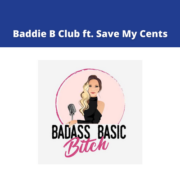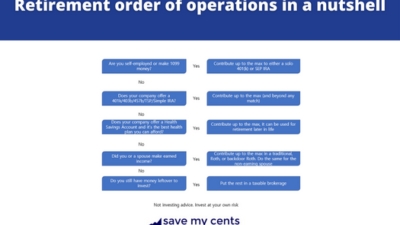A big thanks to “T” from my Save My Cents community for all your help with this blog post!
Whether you view home ownership as part of your life journey, as a real estate investment, or both, it’s important to know how your home investment works. Real estate is unique to each locale, and it is particularly complex in New York City, where the Save My Cents owned a co-op the last 9 years.
Unlike a condo, in which a home owner owns their apartment unit, a co-op building is a corporate entity. With that comes many unique rules that are little known.
Owners in co-ops have shares of the corporation. As shareholders, owners in co-ops are represented by co-op boards. Co-op boards are comprised of elected building residents who volunteer their time to meet, interface with the management company, manage the co-op’s financials, and address building and resident issues and projects. A key part of their role is approving purchases and sales in the building. According to StreetEasy, about 75% of the housing stock in NYC real estate are in co-ops.
1. You will be baring your financial soul when applying
Every single co-op you apply to is likely to require an extensive co-op “board package” to review your financial standings and qualifications to be an owner/shareholder, resident, and neighbor in the building. This is to ensure that the co-op would be financially sound and be made up of a community of residents who contribute to that community. Two years of tax returns is standard, as well as proof of all your assets and liabilities. Several types of letters are also required, such as verification of employment and reference letters from professional and personal contacts. To top that off, this personal information is being viewed by your potential neighbors who are on the board. You don’t have the option to decline to disclose or provide alternatives, as this could lead to your application not being considered.
2. You will need a financial reserve to cover co-op fees, after closing on the place
The co-op maintenance fee is charged by the corporation to operate, maintain and manage the building. Shareholders pay this monthly, and the amount will depend on the unit in the building (tied to the number of shares each shareholder has). Maintenance primarily goes towards the property management company, the building’s mortgage, property taxes, utilities, salaries of staff who work in the building. In some ways it’s similar to a condo fee.
Most co-op boards like to see home buyers have sufficient remaining funds after the down payment and closing costs. A good rule of thumb is around a year’s worth of co-op maintenance fees. Co-op boards can also make it a condition of approval to hold these expenses in escrow
3. You can expect your co-op maintenance fee to increase
Maintenance fees for co-op owners are subject to change, usually increasing annually. This is driven by past or expected changes in operating costs, materials, and property taxes. If your co-op building has a doorman, maintenance is also used for doorman salaries, which are union-based, so they can reflect raises on a regular basis. It’s important to budget for this to go up each year. In my personal experience, I have seen increases ranging from ~3-5% a year.
4. Major projects and repairs may result in assessments
All owners in a co-op share in the cost of a one-time repair or capital project, such as a renovation in the building common areas. If the co-op board cannot pay for it from reserves, the cost is charged as an “assessment,” which is a temporary additional charge or increase to the monthly maintenance. Bear in mind that the smaller the co-op, the more painful this could be, as the cost would be spread among a smaller pool of shareholders.
5. Co-ops can make it difficult to rent to tenants
Co-op boards prefer full-time residents, vs. people that use their apartments as pied-à-terres (non-primary residences) or real estate investment/rental properties. There is usually a rule prohibiting subletting in the first few years of ownership, and then, subletting is often limited. For example, the Save My Cents could only rent their co-op apartment for a max of 2 years every 5 years. In addition, the application process for a subrenter is nearly the same as applying to the co-op as a buyer, adding to the application burden.
6. If you do rent it out, you’ll pay a fee
Say you were successful in getting the co-op board approval to rent your unit. The management company of your building is likely to charge a fee. For the Save My Cents, the fee is 10% of rent we charge. If we do not price correctly, this fee could eat up all our profits.
7. Co-ops tend to price lower
Co-ops may appear more attractive when buying, as they cost less than comparable condo units. This will come back to you at the time you sell. This is primarily because co-ops are harder to purchase and sell. Remember that gauntlet you went through to purchase your co-op would also be required of your buyer when you sell. The more onerous process to vet and approve buyers in co-ops could hold up your own sale process (see item 9 below).
8. There may be strict building rules
As we’ve established, each co-op is unique and could have some unique rules for the safety and comfort of the residents. Some examples include carpeting covering at least 80% of the floor space, restrictions on when music can be played, specifications on the sizes and kinds of pets if allowed at all. It’s also customary for the management company to require certifications of insurance for every contractor or technician you hire to prevent risk of damage to the building.
9. You could be rejected for (almost) any reason, making the buying process longer
The federal Fair Housing Act against housing discrimination still applies, but since co-ops are private corporations, the co-op doesn’t need to specify why they turned down a prospective buyer. I’ve heard of people get rejected likely based on their income or profession, perhaps even due to their citizenship (i.e., not American). Though co-ops don’t have to reveal their reasons, these have been raised frequently on online forums. A rejection from the co-op board means starting over again with another co-op, adding more time and cost to your home buying journey.
At the end of the day, real estate markets are very localized, and as in the case of NYC real estate, co-ops are a defining characteristic of the market. Just make sure to go in knowing what to expect, don’t forget to account for the costs in time, effort and money when you move on as a co-op homeowner.










